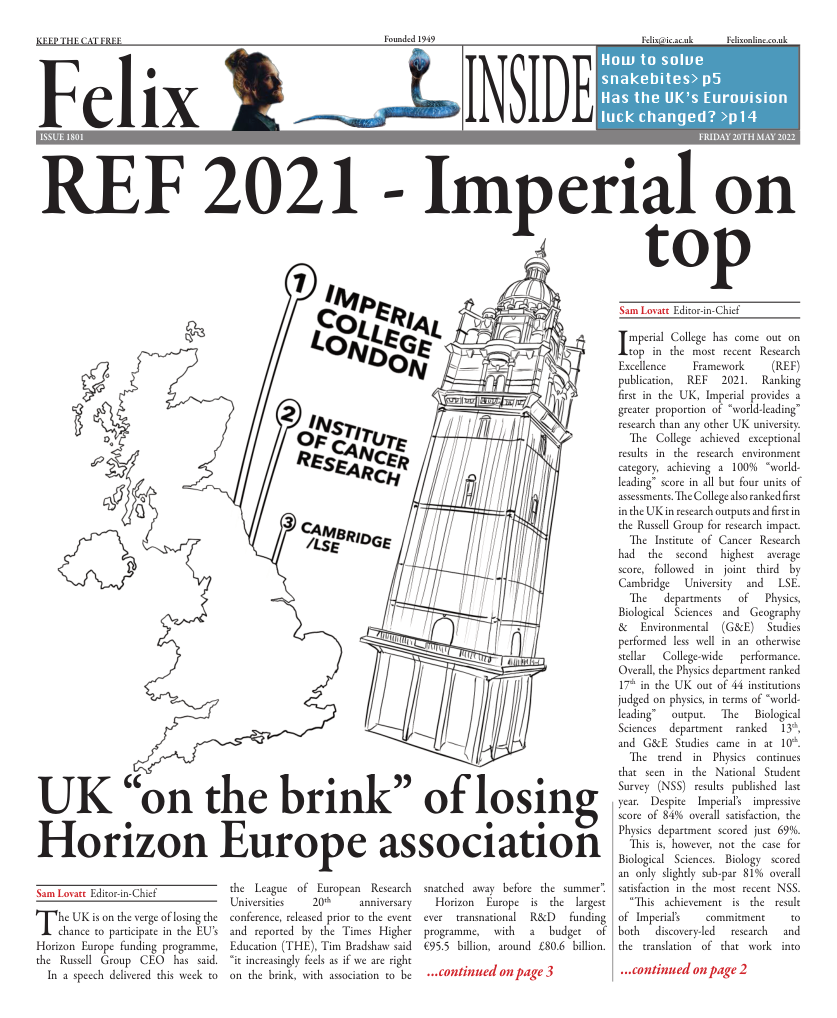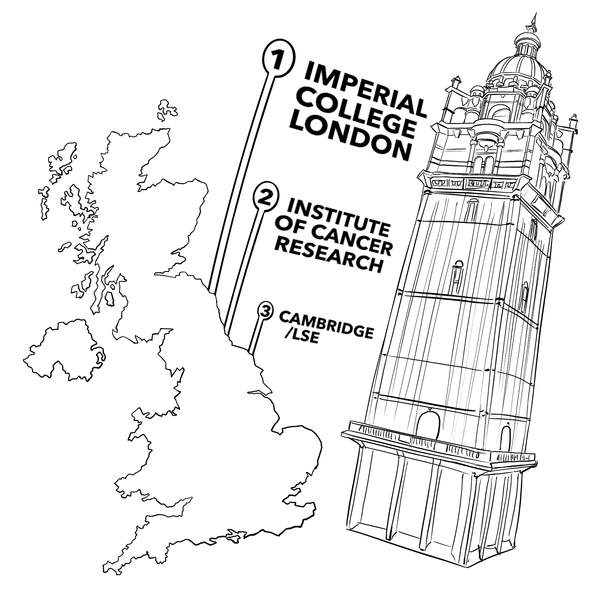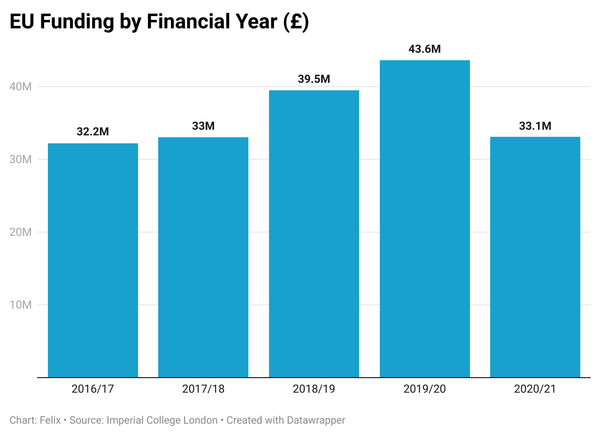UK “on the brink” of losing Horizon Europe association
The UK is on the verge of losing the chance to participate in the EU’s Horizon Europe funding programme, the Russell Group CEO has said.

The UK is on the verge of losing the chance to participate in the EU’s Horizon Europe funding programme, the Russell Group CEO has said.
In a speech delivered this week to the League of European Research Universities 20th anniversary conference, released prior to the event and reported by the Times Higher Education (THE), Tim Bradshaw said “it increasingly feels as if we are right on the brink, with association to be snatched away before the summer”.
Horizon Europe is the largest ever transnational R&D funding programme, with a budget of €95.5 billion, around £80.6 billion.
Bradshaw praised the government for considering alternative funding methods, should ratification fall through, but added “make no mistake: failure to move forward with UK association would be bad news for research and a second best outcome for both the UK and the EU”. He went on to express disdain for the fact that wider politics were standing in the way of science, and urged delegates of the European institutions present to make the case for UK membership of Horizon to their national governments and the European Commission.
In April THE reported that many researchers who had had European funding approved had already made plans to leave the UK, after being contacted by the European Research Council that their funding could be cancelled if they were not registered with an ‘eligible legal entity’, an institution already participating in Horizon Europe, within two months.
UK membership to Horizon Europe was included in the Trade and Cooperation Agreement (”Brexit deal”) signed at the end of 2020, with the UK existing as an Associated Country, able to apply to most funding opportunities on equivalent terms to those of EU countries. The association process has been marred by UK-EU disagreements over the Northern Ireland Protocol included in the Brexit deal, which protects the Good Friday agreement and has led to a de facto border in the Irish sea, segregating Northern Ireland from the rest of the UK. It is understood by many that UK association to Horizon Europe is being postponed until after the Northern Ireland issue has been settled.
Before Brexit, the UK was the second largest beneficiary of EU R&D funding, trailing only behind Germany. The UK government’s post-Brexit Innovation Strategy has been designed to “drive forward ambitions as a science superpower”, according to the UK government website. Aside from Horizon Europe, the department for Business, Energy and Industrial Strategy has set out a three year plan to increase R&D spending to £39.8 billion for the period 2022 - 2025. This will reportedly involve a £5 billion per annum increase in government investment, so that total yearly investment by 2025 will equal £20 billion. This is £2 billion less that the yearly spending target set out for the same timeframe in the March 2020 budget.
Within the increased R&D budget, the UK government has allocated £6.8 billion for association to Horizon Europe, though have stated that if association is not ratified then this funding will be reallocated to UK R&D programmes, “including those to support new international partnerships”. The government has guaranteed funding for all successful Horizon Europe grantees whilst negotiations over UK association continue. This guarantee currently covers all grants expected to be signed and approved by the end of December 2022.
Imperial College has historically been a large beneficiary of EU R&D funding, having received £192 million from EU sources between 2015 and 2020. This amounted to around 10% of total research funding awarded during this period.
Many scientists have voiced far more concern over the prospect of losing the ability to collaborate with scientists across Europe as a result of the UK’s membership to Horizon Europe not being ratified, rather than the loss of funding.
The recently published REF 2021 results show Imperial College as the institution most consistently producing “world-leading” research in the UK, an accolade that will undoubtedly attract more research funding from Horizon Europe and other sources alike.








